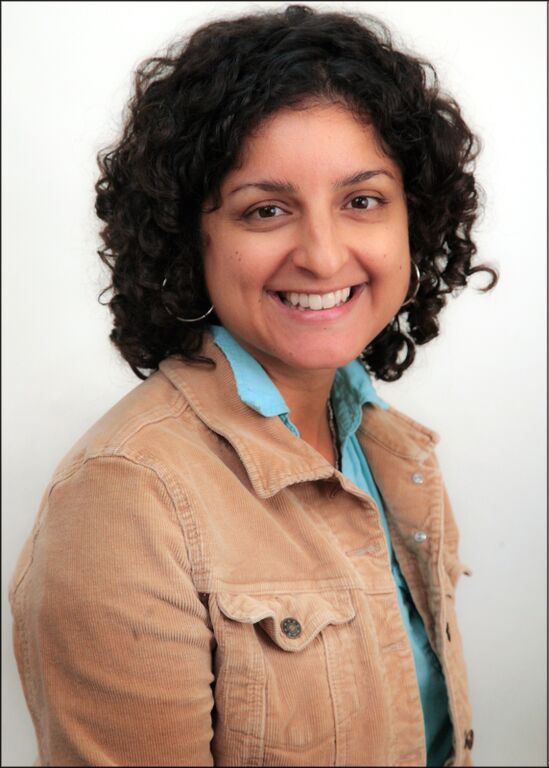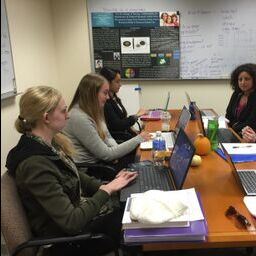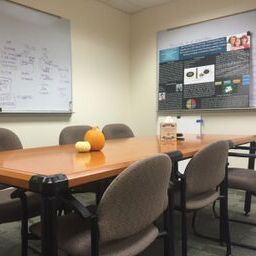 School: California State University, Monterey Bay (CSUMB).
School: California State University, Monterey Bay (CSUMB).
Type of college/university: We are a small, liberal arts university within the behemoth of the Cal State system.
Locale: We are located just outside of Monterey in Seaside, California. Seaside is on the central coast of California and it is arguably one of the most beautiful places on earth. I am so lucky to be here.
Classes you teach: I have been at CSUMB for 11 years and I have taught all across the curriculum. However, my training is in developmental psychology and I have been able to focus on courses in that area as of late. My favorite course to teach lately is socioemotional development.
What's the best advice about teaching you've ever received?
I'm not sure I've received much advice about teaching. I hope I'm part of the last generation of PhD students who received little to no training about teaching in their doctoral program. I have always loved teaching and after hiding that interest in graduate school I have been able to let it shine at CSUMB. The challenge is that we don't have enough time to really talk about teaching. So I read a lot of books about teaching and I try to go to the teaching parts of conferences at WPA, SRCD, and APS whenever I go to those conferences. Almost everything I read shapes my work as a psychology teacher. From the how-to teaching guides to the novels I read for fun, there is always a gem to grab that helps me think deeply about my teaching.
 Tell us about your favorite lecture topic or course to teach.
Tell us about your favorite lecture topic or course to teach.
There are so many great topics that I love to teach in my classes, from attachment to language development to "correlation does not equal causation." To me, what makes a great topic is whether I can make a smooth connection between the topic and something going on in the real world. Right now I am particularly focused on attachment and love. It seems that so many people are struggling with insecure attachments and lack of love in their lives so it's an easy topic in which to get students interested. It also gives me an excuse to have students read Love at Goon Park by Deborah Blum about Harry Harlow's monkeys, attachment, and love. And I also want students to read Love 2.0 by Barbara Frederickson.
Describe a favorite in-class activity or assignment.
My favorite in-class activities are ones that combine active learning and technology. One thing I like to do is discuss studies that students haven't read about yet and have them predict the results. I'll ask them to draw their predictions. This was so interesting the first few times I did it because I purposely was vague about the type of visual display students should use. In psychology we tend to focus on bar graphs but the students were not constrained by thinking they should use bar graphs only. Some used line graphs, pies, and even drawings of people and objects. Then I asked students to take pictures of their displays with their phones and upload to our class Evernote notebook. Then I could show some of the pictures on the pull-down screen. We then discussed whether others would interpret what the author intended and what revisions one would make to improve the display's ability to communicate the data.
What teaching and learning techniques work best for you?
The teaching and learning techniques that work best for me are what I think of as "baby steps" throughout the term. I know everyone is busy and I myself juggle a lot of things. I try to teach the students that it's better to make slow and steady progress on something then to never start something because there's no time. So I have students to take short quizzes every week or every two weeks and I like to them to write a little each week. I use Evernote and ask that students make at least one note a week in their notebook that relates to the class material. I also love to have students speak in class. Oral communication is tough to practice and master but so critical in our world. I ask students to be part of class discussions during class, to sometimes present at the front of the room, and to do a short oral presentation at the end of the term.
 What’s your workspace like?
What’s your workspace like?
My workspace is quite luxurious. Our psychology department just moved into a new building and I happened to be assigned too large of an office. I'm the chair of the department so that was part of the decision as well. It does help that I have a conference style table for meeting with the various groups I am part of on campus as well as my research students, a computer station for doing my writing and preparatory work for class, and a "lounge" area for those personal conversations I might have with students that seem to be facilitated by comfy chairs!
Three words that best describe your teaching style
Experimental; communication-intensive (students writing and speaking a lot); and flexible.
What is your teaching philosophy in 8 words or fewer?
Care about students and they will learn.
Tell us about a teaching disaster (or embarrassment) you’ve had.
I am sure I have had many teaching disasters over the years and the lovely adaptive aspects of memory have erased them from my mind. I'm pretty good at making lemonade from lemons so I am sure that I have convinced myself that it was actually a good thing that such and such did not work out because then we got to do something else in the class room that I hadn't thought about before.
What is something your students would be surprised to learn about you?
Something my students would be surprised to learn about me is that I got a C in my introductory psychology class. It was a big, early-morning lecture at UCLA. I would usually make it to class, fall asleep some way into it, and then take off. It's good for students to know that their seemingly smart professors didn't and don't always succeed at everything academic. It's helpful to perform poorly sometimes. It shows us where we need to put our efforts.
What are you currently reading for pleasure?
I love to read and I usually have half a dozen old-fashioned books and kindle books in progress at any given time. Right now I like Gifts of Imperfection by Brene Brown. She is a researcher-storyteller and I aspire to be that. She is amazing at it and her messages are so important for everyone. We are flawed human beings and that's a good thing.
What tech tool could you not live without?
My tech tool that I could not live without would probably be cloud storage and especially Google Docs. Google Docs has solved the problem of never knowing which version was the most recent. And I love that many people can work on the same document at once, it saves everyone's work, and you can see other people typing!
What’s your hallway chatter like?
The hallway chatter is either about kids and how challenging it is to be a working parent OR about how psychology can get more respect as a science on campus.
PSYCHSESSIONS UPDATE: Listen to Jennifer talk with Eric about work-life balance and the value of improv training for teachers.
https://psychsessionspodcast.libsyn.com/e039-jennifer-dyer-seymour-powerful-role-model-advocate-for-communication-skills-and-work-life-balance
